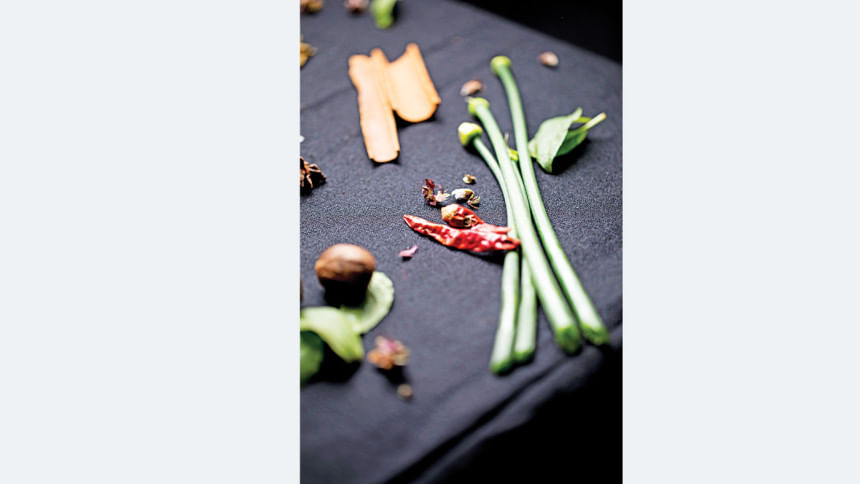Eid preparations in Dhaka: The spice, the hustle, and the feast

The last two days before the grand Eid day are packed with frenzied fuss about anything and everything.
From buying a pair of leather slippers at the last moment from Elephant Road on Chand Raat or to airing out the old panjabi, starching and ironing it, (just in case you didn't go for a new one).
The lady of the house, along with her entourage, is the busiest of all because now is the time for all the month-long effort taken to fall in place — festival grocery shopping, getting fresh notes for Eid salami, booking henna artist, the salon girls, and barbers — everything must be done within the next 48 hours.
I love this hullabaloo, even though Eid rituals are now passé for me. Nevertheless, I put a meek effort into setting the menu, which is a chore, only because I love spice and condiment shopping. Getting the right ingredients is another hurdle to cross, especially during festivals, because you do not want to compromise on the quality of spices and condiments; they make or break the dishes.
Spices and seasoning are used to enhance and temper flavours of any rich curry or Mughal recipe, and to cut the rawness of poultry, red meat, and fish, whereas condiments are add-ons and garnishes used while serving.
A tedious search for Rabri, which is a creamy clotted cream or malai, that goes so well with your vermicelli zarda, is a must. A dollop of Rabri with crunchy nuts on top of your delightful dessert of vermicelli, sautéed in ghee and sweetened with sugar, cardamom, and saffron is the absolute Eid favourite. If you are not making your own Rabri from scratch, the city's sweet shops like Premium Sweets are selling it for around Tk 900 a kilo.

The almonds, pistachios, and sultanas, the fragrant green cardamom, the mild spicy rolled-out cinnamon, and nutmeg, to availing the best quality poppyseeds are tasks to be reckoned with. Karwan Bazar grocers stock them from Kaptan Bazar or Chawk Bazar, and sell them at a reasonable price. Like a hundred grams of poppyseed are sold for Tk 280, whereas the local grocery store in your lane sells it for Tk 450. They score their stock from Tongi, and there is the fear that half your poppy seed in those hundred grams is suji or semolina. Poppyseed paste, along with cashews and almonds, is essential for any korma or braised with yoghurt gravy.
I found that mildly earthy-scented green cardamoms are pricy; Tk 550 to Tk 600 for a hundred grams is consistent in Karwan Bazar and any grocery store in your locale. Mace is Tk 350, while a single nutmeg is Tk 10. The one ingredient that you cannot do without is raisins; the spice markets are flooded with black sultanas and golden raisins; and all less than Tk 100. These prices are for hundred grams only. Aloo Bukhara or plums for your biryanis cost Tk 80 or more, and maybe five or six pieces make for a hundred grams.
Gulshan 1 DCC market, Old Dhaka spice lanes, and Karwan Bazar are the best options to shop for Eid spices, seasonings, and condiments. Though all stores are now in a 'no-bargain' mode, open markets ensure quality and are fairly priced compared to superstores and local grocery stores.
Festival cooking for Eid-ul-Fitr is always elaborate; you opt for the best Dhaka cuisine with Mughal influence. Rich menus boasting lamb kababs, mutton rezala, koftas with tomato gravy, biryanis, kheer, and firni have you spoilt for choices. I emphasised local taste because hands down, Dhaka's kacchi biryani recipe is the best in the sub-continent, for which, you need to get your hands on the best spices.
Plating the dishes, serving, and setting the table are all part of the grand showdown, and Eid lunch is where you shine the most.
Eid Mubarak to all My Dhaka readers.

 For all latest news, follow The Daily Star's Google News channel.
For all latest news, follow The Daily Star's Google News channel. 



Comments